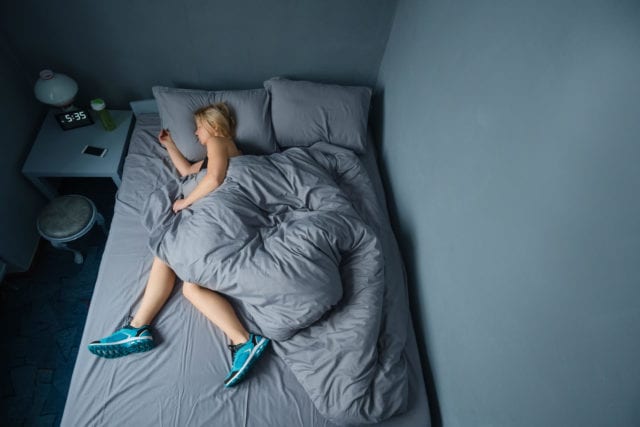
We all have 24 hours in the day. Each person spends their day accommodating their responsibilities, such as work, family, commutes, friends. Some things just have to get done, often to the detriment of two equally as important activities: sleep and exercise.
The world is split into two types of people: night owls who sleep as long as possible in the mornings, and early birds who sacrifice a sleep-in for an early morning run or trip to the gym.
For some people, the only time free for exercise is in the morning, which means less sleep.
But is swapping sleep for exercise a bad thing?
While it is recommended to get at least seven hours of sleep per night, Sleep Health journal has reported that people who get exercise during the day versus getting no exercise are likely to get a better sleep.
Previous studies only focused on lack of sleep, and how sleep deprivation affects overall health. But these studies didn’t take into account how the time not sleeping was being spent: “…at some point we began wondering what people were doing with the time they weren’t sleeping,” said senior study author Dr. Mathias Basner of the University of Pennsylvania Perelman School of Medicine.
Basner has been trying to identify activities that could be traded for sleep: “We all have 24 hours in a day, so for the people who only sleep five or six hours, are they doing a healthy behaviour or sitting in front of the TV eating chips?”
The American Time Use Survey
The American Time Use Survey was held between 2003 and 2016 where nearly 48,000 working men and women were interviewed on a weekday and logged how they spent their time in the previous 24 hours. Researchers found that people spent most of their time working and commuting. Approximately 17% said they had exercised in the last 24 hours.
Long work hours were seen to be associated with short sleep and low exercise rates. Those who exercised slept an average of 15 minutes less than those who didn’t exercise. As exercise time increased, sleep time dropped.
Study Findings
Basner and colleagues analysed the survey. “The problem is, we can’t tell people to work less, but we can look at habits before bed, which is usually TV watching, or in the morning, which is commuting and grooming,” Basner said. “This study suggests it’s possible to both exercise and get enough sleep.”
Opposite to previous beliefs, they found that those who get exercise later at night still get plenty of sleep. In fact, exercising during the day, and even before bedtime, could help people to fall asleep sooner or more deeply.
Other Factors
Personality type is another factor in the impact exercise has on sleep – whether someone has an early or late circadian preference. “An owl who is likely to go to bed at 1 a.m. might exercise well at night, and the lark who wakes up at 5 a.m. anyway might exercise before work.”
Social and economic factors impacted the study also. Family income and education levels influenced sleep. Those with higher incomes and better education sleep less, but are also likely to get more exercise.
So when should we exercise?
The take home from this study is that exercise should improve your sleep, even if it shortens it.
However, the ideal situation is to get both enough sleep and exercise. Ideally, people should try to fit their exercise in during the day. To achieve this, it is suggested that employers should offer opportunities for exercise at the workplace. This could range anything from a Bike to Work scheme or encouraged exercise at lunch break. This would benefit the employers also by improving the health and productivity of the workers, and overall employee morale.
However, if you’re struggling to fit the exercise in, don’t worry about the sleep you’re missing from going for a run early in the morning or late at night. As long as you’re maintaining a realistic balance, the benefits of exercising are worth setting the early morning alarm.


